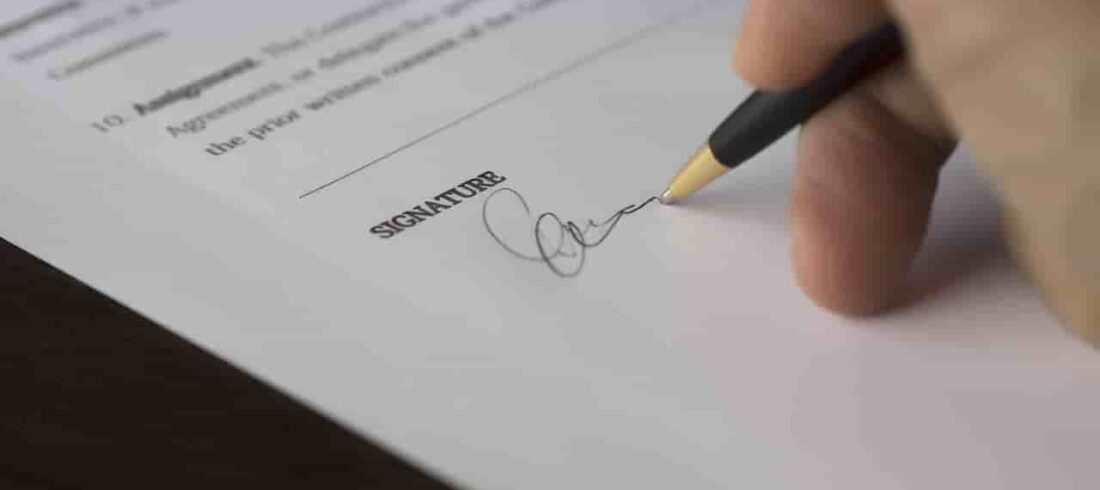- About Us
- Legal Services
- Family Law
- Property
- Marriage
- Immigration
- Contact
- Payments
If you need a notary service Thailand or a public notary in Thailand then call us today. The notarial services attorney as it is called in Thailand or notary public in Thailand as it is called in the West. This is more often required in Thailand especially by institutions such as banks as well as embassies, schools, government or other private organizations and at times or even an individual person to verify the authenticity in both form and substance of documents being presented or submitted.

The Thai notary public includes the verification of the actual and personal execution of the notary. This by a lawyer to the identified person. Examples of documents commonly notarized are bank statements, copy of land title deed, contracts, power of attorney, deeds of sales and other documents. G.A.M. Legal Alliance has a notarial services attorney in Thailand who can notarize documents.
The notary public is an official appointed by a state to administer oaths and affirmations. In addition to performing notarial acts, a notary may also issue certificates of deposit and attest to the identity of witnesses. Notaries also play an important role in litigation and business transactions. They are generally appointed by the courts and are responsible to their state legislatures for the performance of their duties.We are your Bangkok notary service.
There are different types of notary public. One type is the secretary or clerk of the legislative body or court of record. This person is usually a citizen at least 21 years old with 2 years experience as an assistant secretary or clerk in the legislative body or court of record. He or she must also be lawfully registered as a citizen in his or her state.
Also must meet other qualifications set by law. The Thai notary public is much the same. The other type is the clerk of the court of common pleas or circuit court judge who serves as the secretary of that court. In addition, each state has its own requirements for qualification as a notary public. For example, a college degree is usually required for appointment as a notary public in Thailand where that qualification is given to graduates.
Our notary fee depends on the number and type of documents to be notarized. Speak to us online or visit our offices in Phuket or Bangkok for more information and assistance. The following documents which we can notarize have been listed below. Public notaries in Thailand are not very common so speak to us about the notary service Bangkok.
Furthermore, public notaries serve as impartial witnesses when it comes to contracts and document transfers within the legal documentation and international transactions sector. Their presence lends credibility and ensures the proper execution of agreements, safeguarding the interests of all parties involved.
Another critical function is the certification of translations, particularly for documents like sponsorship declarations, within the legal documentation and international transactions sector. Public notaries ensure that translated documents accurately represent the original content, crucial for international communication and legal compliance.
Additionally, public notaries are entrusted with the authentication of deeds, notarial certifications, and the execution of powers of attorney, all of which are essential for the legal documentation and international transactions sector, ensuring the legality and validity of important legal documents.
To ensure a trouble-free UK fiancée visa application in Thailand we are delighted to assist you and your fiancee with the application through our comprehensive public notary package as follows:
Ever heard of the Hague Convention of 5 October 1961? Also known as the Apostille Convention, it’s all about public documents from one country being used in another. This international deal makes things simpler by replacing the lengthy and pricey legalization process with just one Apostille certificate issued by a Competent Authority where the document is from.
Now, when it comes to public documents abroad, like those from a Notary Public, the Apostille Convention steps in. If a document is notarized, the “Apostille” guarantees that the notary’s signature is real and that they hold the stated office. However, it doesn’t vouch for what’s inside the document.
This Convention is a big deal, with over 125 countries in on it. They issue millions of Apostilles each year. But here’s the catch: only certain Competent Authorities in these countries can give and check Apostille Certificates. Now, about those terms Apostille and Legalization? They’re two different ways to make sure your documents are good for international use. Let me break it down for you below.
So, here’s the deal: Thailand isn’t part of the Hague Apostille Convention. What does that mean? Well, it means any official document you want to use in Thailand won’t get an Apostille. Instead, it has to go through a different process called legalization. This might involve some extra steps before your documents are ready for the Embassy or Consulate office.
If your papers are from Thailand in the first place, you’ll need to reach out to the right competent public notary to guide you through the process. The most common use in Thailand with expats is having their documents legalized by a public notary. This mainly being signed documents for banks back in Europe or the US. See also the Bangkok Notary Service or notary public Bangkok explained further.
So if you need help with legal issues in Thailand, it’s a good idea to talk to us at GAM legal alliance about finding certified Thai lawyers. You know, in many countries, when you have documents from another country, they need to be notarized before they can be officially used or accepted. But here’s the thing: if the country where the documents come from doesn’t have a notary public, it can be a bit of a problem.
Now, in Thailand, they don’t really have a system of public notaries like some other places do. Back in 2008, the Lawyers Council of Thailand made a rule that lets certain qualified lawyers act like notaries. They can verify that documents and signatures are legit, but they can’t do things like administer oaths. Around 5,000 Thai lawyers have the certification to do this, but it’s not the same as having public notaries like in some other countries.
If you’re used to how things work in countries with common law, notary publics do things like oaths and affidavits. However in civil law countries like Thailand, notaries have a broader range of services. This even though they work privately. Additionally you will note that Thailand isn’t part of the Hague Convention on Legalization. So even after a Thai lawyer notarizes your document. In addition you might still need extra notarization at the Ministry of Foreign Affairs or the Embassy of the country where you’ll use it.

Read about the Hague Conference on Apostille Convention and see that Thailand is not a signatory to the Convention. See how this works from Thailand as an expat from the West.

See the notary public in Bangkok article. See what is allowed in Thailand especially those expats who need documents certified.

The Bangkok Notary Service explains how best to certify documents in Thailand for your banking back home in the West.

See the listing with many of the Thai Statutory Laws in Thailand. You will note which international agreements Thailand has also signed.
So, you’re probably wondering, what can a notary public in Thailand actually do? Well, it turns out that notarial services in Thailand aren’t as widespread as in some other places. The deal is, only a limited number of lawyers get the green light to provide notarial services, and they have to go through some serious training and pass a test before they can start notarizing documents. The big boss in charge of all this is the Lawyers Council of Thailand.
Now, once a lawyer is certified to offer notarial services, they get the power to:
Why does this matter? Well, when parties sign an agreement or do some legal stuff, their documents and signatures need to be notarized to make sure they’re for real. This helps prevent shady people from submitting fake or messed-up documents. The notarial services attorney doesn’t take sides – they’re like a neutral witness, making sure everything is on the up and up.
Some government agencies even want a Thai lawyer to say if the signatures on certain documents are legit. And get this – if you sign something outside Thailand, it might need to be notarized in that foreign place before Thai authorities will accept it as real.
Here’s a tricky part: even though Thai authorities don’t ask for documents to be notarized in Thailand, sometimes these documents are treated like they were notarized under Thai law when they’re submitted to foreign authorities. But here’s the catch – it depends on the foreign law, and many officials might not know that Thailand doesn’t have a law for a Thai notary public.
Ever heard of the rules set by the Lawyers Council? They’re the ones who make sure everything’s in check when it comes to Notarial Services Attorneys. These attorneys are like official document superheroes licensed by the state to make sure everything is legit, especially when you need to use documents overseas or at foreign embassies in Thailand.
Now, you might be more familiar with the term “Notary Public,” but in Thailand, it’s kind of the same deal. Some lawyers here are given the green light by the Lawyers Council to act as Notarial Services Attorneys. You can usually find these legal superheroes in law offices.
But here’s the scoop: before these lawyers can be called Notarial Services Attorneys, they have to be licensed by the Lawyers Council of Thailand. It’s like getting a superhero badge. The Lawyers Council is on top of things and even started a training course for lawyers who want to be Notarial Services Attorneys. If a lawyer passes this training, they get the official license for a Thai notary public.
Now, according to the Lawyers Council’s rules, Notarial Services Attorneys can do cool things like:
Whether you’re Thai or from another part of the world, if you need to notarize documents for use overseas, make sure to go to a licensed Notarial Services Attorney certified by the Lawyers Council of Thailand. That way, your notarization will be legit and can be used anywhere in the world.
So, you might be curious about what notary publics do in Thailand, right? Lots of people wonder what their deal is and if we even have them here. Well, in Thailand, a notary is like a super official person who administers oaths, puts their official seal on documents, and makes them look all credible and real, especially if you need them to be recognized in another country.
Now, the Lawyers Council of Thailand has set up some rules. They made it a requirement for lawyers to register as qualified attorneys who can certify signatures and documents. They’re also offering training courses for Thai lawyers and giving out licenses to those who pass the Notary Public training.
Even though Thailand doesn’t have a traditional Notary Public like in some other places, licensed lawyers here can become Notarial Services Attorneys after going through training. These legal superheroes can do cool things like vouch for the authenticity of documents, affirmatives, signatures, verify someone’s identity, and certify copies of official documents and translations. And get this – these services are recognized and accepted worldwide.
Now, when it comes to notarization duties, the Lawyers Council of Thailand has a list, and it includes things like:
Whether you’re Thai or from another country, if you want your signatures and documents to be legit in another country, you’ll need a notarial services attorney from the Lawyers Council of Thailand. If you’re from a different country, chances are you have a state-supported notary public who can handle similar tasks. These functions are important because they guarantee that documents and signatures are the real deal. If you have questions, it’s always a good idea to talk to a lawyer from a Thai law firm in Thailand.
Contact us today for your notarial services needs. See out location and contact details on how best to get access to a public notary in Thailand today. With offices in Bangkok and Phuket, we can assist you in the most cost effective manner in Thailand. Your Bangkok notary service in Thailand.
